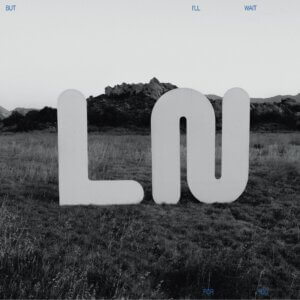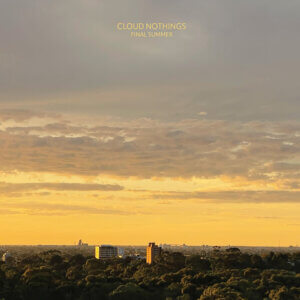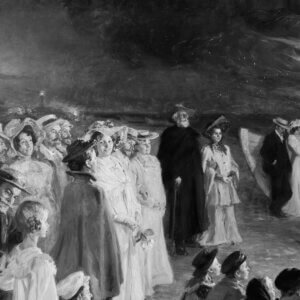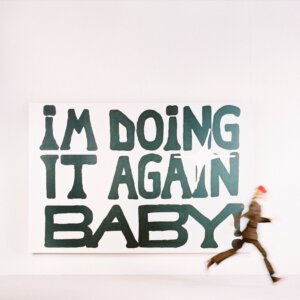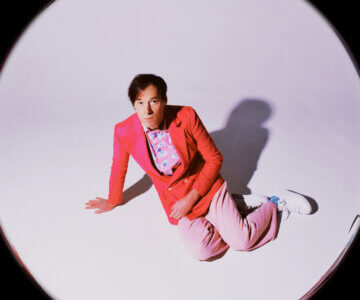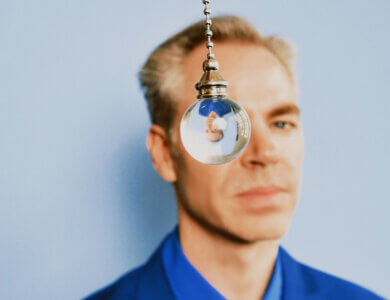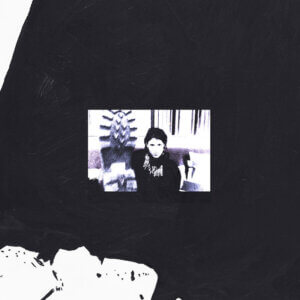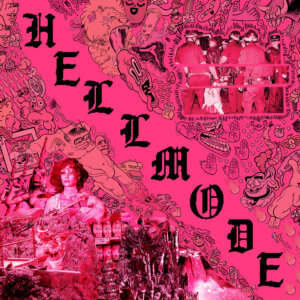Interview With The Rentals’ Matt Sharp

Northern Transmissions talked to Matt Sharp of The Rentals a few days before the official release of Lost in Alphaville, the first album from The Rentals in…a very long time. From the very start when The Rentals were a side project while he was still in Weezer, Sharp has shown himself to be looking for something more than whatever was in immediate reach. Lost in Alphaville demonstrates that desire to push the boundaries and keep finding something new. Sharp talked at length about the creation of the album, his relationship with each of the artists and how he worked with them to realize the project. Jumping from early influences to stages of creative thought, he gave a sense of his musical and creative history, explaining the groundwork for the album and revealing a perfectionist streak. Open, warm, and funny, Matt Sharp shared his anxieties and hopes for the album, and appears to be someone who not only really cares about the music, but the musicians making it. A conductor, of sorts, driven until the end. He spoke with Alice Severin about finally releasing Lost in Alphaville to the world.
NT – So how are you? How is Los Angeles?
MS – It’s good. It’s cooled down quite a bit. It was kind of a heat wave for a while which in normal circumstances, there’s no real reason to complain but the place that I live in was built in the 20s and it’s just not insulated for that kind of thing.
NT – Your voice sounds good. Have you been getting ready for the upcoming shows?
MS – Whenever I get done doing vocal warm up stuff – I sing to a bunch of old Frank Sinatra songs, things like that – you come out of it sounding super present and right there – like hey! Yeah, I’ve been getting ready for these shows we have coming up and doing strange vocal exercises, stuff like that. I’m trying to be better about that. We’ve got these shows and I’ve been incredibly lazy with singing like I have been for last bunch of years and pretty much my whole life. (laughs) So I do that stuff that makes you sound like an alien and then I sing all these old standards that my grandfather used to listen to before he passed.
NT – Did he sing to you?
MS – It was the one thing that we connected on. He could get really intense. And then to calm him down I’d just go, why don’t you tell me about Frank? And he’d start talking about Sinatra and it would instantly put him in a good mood. So I always had this thought of being able to sing those songs. I had an idea about paying tribute to him that way or something like that. But my grandfather would sing all the time. He would entertain himself by singing, dancing by himself, all that kind of stuff. And he had told me this great story, which I really wanted to believe, which was that he was a mechanic, and he owned gas stations and things like that, in Manhattan in the 30s. And at the gas station on the east side of Manhattan, you know, under a car, working on some exhaust manifold, or something, he was singing to himself and this guy walked in and overheard him. And then like a week later he’s in a bar, and this guy comes in and goes to him, hey, hey I hear you’re the singing mechanic. You’re the guy I heard working underneath that old rag top or whatever and he said, yeah that was me. And the guy said, I’m a talent coordinator, I want to you to come down and audition for Benny Goodman.
NT – That was a really big deal.
MS – And he had this card, and he kept the card and but he never showed up at the audition.
NT – He didn’t go?!
MS – No, he didn’t go, he had stage fright, and as much bravado as he had, he was too timid to do that for some reason and it was just this thing that he would share with only me and speak about regret. This one regret. I have a feeling that there’s so much yarn spun in that, that there’s probably little remnants of truth so I don’t know. But I love thinking of things – those what if moments, just thinking what if that might have happened, what if this turn had gone that way or whatever. Always fun to think about alternate realities, all that kind of stuff.
NT – This is your first full length album in a very long time, Lost in Alphaville, so what made you decide to make it, and why now?
MS – I don’t know. I mean it’s probably as simple as making the records that you have to make when you need to make them. (laughs) I think it’s kind of as simple as that. You know, I’ve not been a person to force anything in my creative life. I tried to do the things that seemed the most in tune with where I am at that particular time in my life. No matter if it’s a commercially viable option or not or something that people want from me. And I don’t really ever consider any of those things. The only thing that I consider is what the hell do I want to listen to right now. That is pretty much is what led me to this point. Just as it did with Return of the Rentals, or Seven More Minutes or I made one very sparse, solo acoustic album that was fairly subtle and not probably what people had come to expect from me and was certainly not a commercially viable path to take because it had very long atmospheric songs that were kind of six or seven minutes long. And that was precisely the kind of thing I was listening to at the time and it was where I wanted to be and maybe to the detriment of popular success. But I’ve never let that be the guiding thought. This album, Lost in Alphaville…I landed in that place. I guess the thing you hope to feel as a creative person is a desire to tell people things. Sometimes there are breaks in life where you don’t really give a shit about telling anybody anything or whatever, you’re like hey I could care less whether you know about this. And sometimes you have a feeling very distinctly propelling you forward, this is something you need to share.
And as delusional as that might be, I think probably a true professional, unlike myself, creates probably no matter what. Goes to the office, hits the clock, like Burt Bacharach, or whatever, where they go in and say every day I write this time to this time, no matter what, I’m a professional. I’ve gone through little phases of that, but I have definitely not done it consistently and that’s probably why this album took years to make.
NT – It’s interesting that you mention the solo album because I was reading some of the old interviews and about the time you released it, I think, you mention Mark Hollis, from Talk Talk.
MS – I’ve been out of that phase for a long time. I mean obviously it’s not reflective of what Lost in Alphaville is like, I mean it doesn’t have too much Hollis in it.
NT – Definitely not. Except that idea of wanting to do it your own way, maybe.
MS – But I went far down the road with him. And it actually preceded Weezer starting, my love of Talk Talk, or at least that particular era of Talk Talk and his solo album. And talk about big gaps between albums, he certainly…I might be giving him a run for his money but he’s certainly the master of monumental gaps of silence between each release. But yeah, there was a period when I first heard Spirit of Eden. I mean every single piece of music that I’d ever heard was rendered completely insignificant by that album and it just changed the way I thought about what music could feel like or what it could look like visually if you close your eyes, that sort of thing. It really stayed with me for much longer than most things I obsess on. Most things I obsess on I kind of move through them and never pick them back up again. You know. But that one stayed with me for a long time. It’s very possibly the most unsung album ever made, as far as I’m concerned.
NT – But Lost in Alphaville is very different.
MS – I would say one thing that would be an influence from that album and probably runs through everything I attempt to do, not to say that I get there, but the wholeness, just the wholeness to the album. Every song on Spirit of Eden, no matter where you play it, sounds like Spirit of Eden. It has a feeling, it has a place. You could put that album on loop and it doesn’t matter at what point you walk into the room, you know, you get that feeling from it. And that is definitely is something I strived to have us all achieve on this album, where it has just an overall oneness to it and it feels like a singular thing. It could be considered a negative thing. But for me, that’s what I’m aiming for.
NT – You mentioned starting to read some of the reviews.
MS – It’s funny, you know, the record is coming out in a few days all the way across the board. At this time, records don’t even come out on a specific day anymore, they come out in all these different phases, here and there through this outlet and that outlet, this thing and that thing, they get leaked and this and that so it’s so strange. You don’t get that feeling of a celebratory day or whatever. But I would guess for most creative people that once you put out whatever you’ve been working on into the public realm and people can do with it what they want, there’s some part of it that ceases to be yours. So up to this point, pretty much until very recently, I was incredibly protective of it, probably to a level that drove the people that work with me a little nuts.
NT – What did you do?
MS – I only wanted people to hear it in my home, and hear it in my little home studio room and kind of all squeeze into the room and listen to it at the volume that I wanted, which was probably always a little too loud. And then listen to side one, then take a break, you know, make a little popcorn, (laughs) there was a sense of a movie-like presentation to my friends or those closest to me, or the people I wished to work with or whatever. So it’s really funny, and now just realizing that we are actually sending it out to people and I’m still trying to control that feeling. Like I sent it to Sara Quinn who I worked with on the Tegan and Sara album, and I said to her, ok I’m sending it to you but I really want you to listen to it in this way, so I’m sending instructions. I think that’s a sign that it’s time to cut the umbilical cord and let it go and let people listen to it however the hell they want to listen to it.
NT – The album starts with “It’s Time to Come Home and ends with “The Future” and it feels like a journey in a sense. You could almost imagine a film or a video, a multi-media piece. It is interesting – bookended by the idea in the lyrics of home, but there’s nobody home in the beginning, and then the future at the end. Did you see it that way lyrically too?
MS – Well, I think, not so much directly lyrically in a concept album kind of way where you say ok the story begins here, and the next song is picking up lyrically from that …But one thing is different about this album than any other album I’ve worked on is that before we started I figured out a bunch of things before we even hit record. I knew what the title of the album was, I did the artwork for the album as far as the general sort of idea of what it was going to look like, and thought through the songs. I basically put them in that order before we started actually working on them. So you know I thought, ok I’m certain “Time to Come Home” should open the album and it’s a feeling and “The Future” is certainly the bookend to that. Those two songs are kind of related to each other in some way. And then I just kind of thought it all the way through, which is very different from what I’m used to. I’m sure that other people have done that before, but for me it was a completely different experience. Because usually you go in with your group of people into the studio, if you’re a traditional kind of band, and you record a bunch of songs and you see what’s working and what’s not. And after you’ve done everything you go, that would probably sound good to be the opener, or what’s the most commercial song, we’ll put that second, there’s all these sort of traditions. I didn’t think about it at all that way, it was more let’s put the ideas in sequence and then figure what they need from that. Like if “It’s Time to Come Home” is going to open the album, what should that sound like? And once that song is over, what should “Traces of our Tears” do? That kind of informed the way we approached it.
NT – How did you choose the people the people to work on it? You had said that you put your whole studio on the plane to go record with Lucius.
MS – Oh, yeah, with Jess (Wolfe) and Holly (Laessig). Yeah, you know, talk about new experiences and going into places you’ve never gone before. I worked with some pretty incredible female singers before, I’ve been very fortunate. The Rentals have had many really extraordinarily talented people who worked on the albums, different singers. The thing that is always a common thread between our albums is that as far as just the singing goes, the women that have worked on our albums are in a completely different stratosphere than I am as a singer. And so I’ve worked with both the Haden sisters, with Rachel and Petra, and with just extraordinary people, with Tegan and Sara. But still the experience of working with them was very different from working with Jess and Holly which was just such an insane thing for me.
NT – How did you find them?
MS – I’d just basically got to a place where I was very happy with everything that was to do with the album. We had taken it right it to the place where it was a half second away from being completed. We were right at the edge of that, except I had not found the female voices that I thought were essential to The Rentals. So I went on that journey for a long, long time, trying to find just the right presence in all senses. Just somebody that has an interesting character. People that not only have incredible voices, but are interesting people that you like and that you are inspired by, and root for, and all that stuff, right? And I listened to so many voices that at some point I couldn’t distinguish anybody from one another. They all kind of blended in to this kind of one amorphous thing of a singular female voice. And I thought, oh my god, I have no idea.
NT – How did you react?
MS – I really had hit a point where my decision about making another Rentals record was that if we couldn’t get it to the place where I wanted it to go then I was content with the thought – well then you just won’t make records anymore, you won’t release it. You’re going to fight for it until you get where you’re going, and if you can’t get there – then there’s got to be other things to do in life. I had a lot of people helping me, people who knew a lot more about all the music going on in the world, people from different countries, different places, and all that kind of stuff. So when I really got to the point of thinking maybe we’re just never going to find that thing, a good friend of mine said, oh yeah you know, I forgot to mention Jess and Holly from Lucius, have you ever heard Lucius before? And they hadn’t even put out their album, they had just put out a few singles, or EPs, or digital releases, that kind of stuff. So I had no idea about them. The moment I heard them and then went online and watched live videos of them performing, it was absolutely that eureka moment for me, ok, that’s it. Then the hard part, god knows if they would be even interested in doing this.
NT – What made you think that?
MS – I think there’s a real strange thing about The Rentals and it makes the female vocals challenging for the albums that we’ve made in the past and it’s certainly true for this album. It’s that the female vocals have an incredibly important role in the music. They are absolutely essential to the album and they change the way you interpret the songs and all of those good things. At the same time, they’re not the lead, and so you’re asking somebody to be nearly the lead, you know? Great female singers who are lead vocalists are not always entirely interested in singing somebody else’s words or somebody else’s thoughts or whatever. They’re great singers and they need to express themselves about what they feel and what they believe. So it’s a very strange thing. And that’s one of the reasons that it took a little bit of time. I guess there are a lot of people who will say when you grab them “I’ll sing on one song or maybe on two songs, but hey, I’m not singing on your whole freaking album.” (laughs) And my thing is that’s the thing. It’s not my album, it’s our album and I do look at this album as that.
NT – More of a collaborative process.
MS – Certainly I directed the record and all of those things but it’s all of us producing the album together. And that’s why the record says it’s produced by myself and The Rentals, because when we work together I work with people who I really respect – to a place where they change the direction of where we’re going. I can make a suggestion and they can say no, I don’t think that’s where this needs to go and I trust them, I trust their instincts. And I really wholeheartedly trust Jess and Holly because I am just absolutely an enormous fan of their own work. And the moment we got in the room, I was 100% certain from probably about a minute in, that yeah, this is correct. It was very important for me to be there, to meet them in person, not do it over Skype. I really wanted get an understanding of – are you the right people for this, am I the right person for you, is it right for us to do this together? For anything I do creatively, I can really turn, overturn every stone or whatever or until you get to that place. But once you get to that place I feel like that you have to recognize it and just jump in together.
NT – And the time frame.
MS – What is interesting about this record is that the real creative moments of this album, sometimes there was a long period in between, but when they happened, they happened very quickly. And the moments with Jess and Holly were incredibly explosive. I mean, I met them and then the next day we were recording and we only spent a total of about two days on the album together.
NT – That’s amazing.
MS – Yeah, it’s because they’re amazing. One thing that is funny, we were talking about reverence for Spirit of Eden and that feeling of when you first find an album like that, that everything just kind of falls away, you know, and I had completely had that feeling with them and their music and what they created. And I had just discovered it. And it was nearly the next day that we going to work together. Which was such a cool experience, being in the room with people you feel that way about, that you barely know but you are just swept up in how just incredible their music makes you feel and how their voices makes you feel, and they’re right in front of you on the microphones. Working with you to try and to get there. So it’s pretty cool and they are no less than spectacular. Just an incredible moment.
NT – Did you sing with them at the time? All your voices sound so seamless.
MS – Only in suggestions. To work as fast as we did, I did not take even a millisecond of my time with them for granted. So I’ve never been so prepared to work with anybody as well as I was prepared to work with them. (laughs) We had very well done vocals in place which were like temp vocals for them to replace and things like that. A lot of ideas, and then other moments where it was just like vague suggestions. They work differently from any other singers I’ve ever worked with in the way that they approach themselves as one person. They sing with each other simultaneously, they face each other. They have two different tones of their voices and it kind of makes one person. And they sing the same melody together and then if they if they want to double it, they will double the melody together. But when they’re put together it just opens up into something where you can’t believe that beautiful sound that big and that wide is coming from those two people.
NT – Speaking of people that make a lot of sound from a small group, the relationship between the bassist and drummer is always important. And you and Patrick Carney seemed to fit together so well on this album. So how did the two of you work together? What was that like?
MS – You know, I mean speaking for myself, I’m completely the least technically proficient musician in any way, especially when it comes to playing bass, of anyone that I know. (laughs) He would probably be the first to tell you that he’s not the most technical drummer that ever lived. And I think there’s something about that and the way he plays that kind of reassured me that’s ok for the way I play. We’re both cut from the same cloth in that way of playing – in a more of maybe what we’re best at or most natural at, is playing in a rather, at least for the way I play bass, a sort of ham-fisted, sort of caveman like way and not filled with subtlety and technical proficiency at all. But when you see Carney play live – the last time I saw him which was in one of the these big arena shows that they have graduated to, there’s no doubt that half of that arena wants to go right home and start a band. And there’s something about the way that he plays that inspires that. It inspires that in me. It just makes it like – fuck it, let’s just go do it, you know? And that is definitely something that he brought to this album of yeah, let’s fucking do it. Let’s go! And not a sense of hesitation or whatever, just come on, it’s music let’s go. Boom! (laughs) And as patient as I can be that was probably good to have that bull in a china shop kind of thing of let’s go fuck shit up. And I know the album needed that. It reconnected me to something in there that I had not been connected to for a while. I think that the way he plays made me want to make sure that my end of it had as much nasty bravado as possible or something. He’s been very influential on this album in that way and he definitely changed the trajectory of the overall album, in a sense more than anybody else. Even though, just like with Jess and Holly, the creative time we spent together was probably even less. So just as minutes logged, we probably did all of his parts on the album in maybe two and half days at most.
NT – It sounds like he brought a lot to the album.
MS – His influence goes beyond that because even though we did not know each other at all going in to this album he would speak to me very much like we’d known each other since we were kids. He would call me on my own shit and basically challenge me. I think we had that thing from the moment we met each other, where he’d just be like, “Dude just tell me this. Tell me this isn’t going to happen.” (laughs) Like there was at one point where I’d really taken this approach that maybe the album should be produced in a completely synthetic way where it was just all drum machines and things like that to give it a kind of cold, science fiction sort of sensibility to it. And after we had recorded the first day, we had a couple of cocktails out on his porch overlooking this incredible Nashville countryside and he was like “Dude, just do me a favor. Tell me I’m not going to walk into a record store to find the new Rentals album and there’s still going to be those fucking drum machines.” That made me laugh. And we had really just met each other so we were off in that place from the get go. It’s really cool. Who knows why that is with certain people where you instantly have that thing where you can have a bunch of stuff unspoken. And Carney was very similar with the way he would approach things. Essentially with his stuff, he would play beats, and just go “I’m going to go here, let me try this” and then listen back to it. He’s very self-deprecating so he would say something about his own playing and then say I’m going to go back in, then he’d go and play something different and try things that would just be about feeling. He didn’t map out everything perfectly. And then later I took that back to my studio in LA and tried to figure out how that was all going to fit in with all the layers of synthesizers and guitars, strings, and all that stuff.
NT – It must have been a really interesting way to work. And the fact that you had this connection with all three of them, which comes across in the music.
MS – Certainly the other two main contributors, Ryan Slegr and Lauren Chipman, had an even more difficult task. I’ve known them the longest. Basically Carney and Jess and Holly were the benefactors of Ryen and Lauren. In the early stages where I did not know where it was going, the three of us were searching together for what that meant, what the tone was going to be. And that especially goes for Ryen Slegr. I guess I feel this way about everyone, that it’s their album. But in many ways I do look at this as Ryen’s album as maybe you would with like Exile on Main Street you’re like that’s Keith Richards’ album or with the Blur album that has Song 2 on it you’d think oh that’s Graham’s album. You know? We started from Ryen, just the two of us one on one and essentially working with limited scaffolding and placeholders and things like that. But he was essentially playing to things that didn’t have real drums and didn’t have fully thought out parts or whatever. He had to imagine it with me, we both had to go to that place together. He was extraordinary in that way. He had the most difficult job to start us off into the right direction.
NT – The guitar playing is pretty fantastic. There are some real moments in there where you think – I’m not familiar with this guy – but why not?
MS – Yeah, you know Ryen Slegr is an amazing musician and very much overlooked. I think there’s something that is unique in his playing that I felt like I wanted to get at. We had worked together a tiny bit on these garage recordings and there was something in there. We never really explored it all the way, but there’s something in his playing that really resonates with me. He’s a very interesting individual. I wanted to go in there and try and search around and discover whatever that feeling is and not give up until we really found it, and then just make it the best thing that he’s ever done. And then I could share that with people and go, this is an example of what a talent he really is, because I just don’t think that many people know. His other band is called Ozma, they have a following, but I still feel there are so many people out there who just have no idea about him. He has something that is unique that needs to be shared with more people.
NT – So he was there right from the start.
MS – He was the person who was most involved with me on the record from its inception to seeing it through and I would rely on his ears. Ryen was that person for me throughout all the different phases whether he was playing on it or not. Often it was just him coming over for a second and listening to it and going yeah you’re on the right path and then he’d get out of there.
NT – You trusted him.
MS – So much comes back to that trust. Trust in that. Making sure that the people you decide to work with are the people you know inspire you and that you trust and that you’re terrified of letting down. Every one of these people is like that for me. Carney has been so incredibly generous, just the way he’s been very reassuring and filling me with confidence about the Return of The Rentals and what it’s meant to him, so those kinds of things coming from somebody that you look up to so much is a really a cool thing. So of course that, at least for me, puts me not so much on the edge, but it puts me in a very uncompromising mind set.
NT – And you wanted Dave Sardy to mix the album.
MS – So you know if this album is going to be mixed, it’s not going to be mixed by just anybody because I’m not going to put those people who put their hard work in at risk. So it was integral to me and to this album. And lucky enough for me Sardy was willing to work with us and like the others it happened very quickly. He’s a man of very few words but he had done a Tegan and Sara record that I’m a fan of and many other records. Long history but when I wrote to him I was like, god I don’t even know if I’m going to reach out to a guy like this. So I wrote to him gingerly – so I don’t know if maybe you would and he was like – “In.” (laughs) I mean he is bar none the best mixer on the planet. And I just wanted to make sure that it was in his hands no matter what, no matter how long we had to wait, if he had other things he had to do.
NT – Did you talk to him at all while he was doing it?
MS – Well, I was banned from the studio. (laughs) Cause I think he had a good intuition about how long I’d lived with the album and how precious it was to me. Ultimately it ended up being a really good thing because I ended up being able to listen to it and when he would send me a draft of something and say hey this is where we’re going, if it wasn’t in the place that I thought it would go to, I could kind of go through my own permutations of anxiety and try to figure out, ok how do I explain this…
NT -Did he ever do something that surprised you?
MS – Well, you know the album was very arranged. The album was something I took great pride in and so it was given to him in a very specific way. But it’s just the ability. Like EQ and things like that that are probably boring to most people out there but the way it can really change a feeling. And he has that better than anybody and better than anybody I’ve ever worked with. I could write a note and under an hour later a completely different thing comes back and you’re like holy hell. I’ve never seen anybody make those shifts – like, ok you mean like this. Boom you’re just like goddamn! Yeah, like that. Yes sir! Sardy is a freaking heavyweight. There’s just a handful of those guys and he is at the top of that list.
NT – Five albums that stand out for you and still inspire you?
MS: There are some albums you can just go back to for whatever reason. Astral Weeks – I don’t know what it is about that album, maybe being made in two days. I think in total it’s very loose and sprawling. It’s another one of those albums that you can put on loop and you don’t know where it starts and you don’t know where it ends. Rivers actually turned me on to that album, I remember listening to that record at the Gramercy Park Hotel with him and when we were working at Electric Lady.
But now number one is that Lucius album Wildewoman. I’m not just picking it for my own – yeah listen to this, the great people I worked with. That album is solidly on my number one place. I will put on headphones and go for a run and just start singing the songs to other joggers that are passing me by. (laughs) It takes me to an incredibly special place and just fills me with jealousy, fuck, I wish I could do that.
I’ve been pretty obsessed with the last three Manchester Orchestra albums, the most recent being Cove and just their absolute integrity as musicians and how incredibly strong they are and just what enormously colorful records they make. And when I first heard them, a friend of mine was producing one of their albums and he asked me to come into the studio and listen to this record of theirs while they were making it, because as the producer told me, “for these guys like Pinkerton was their bible when they were coming up and it would be really cool if you could come in and surprise them and listen to the album.” And they put that thing on, just put those speakers up so loud it just ripped my face off. It was such an incredible powerful moment of going holy freaking hell, what in god’s name was that? That was a mountain coming at you and it crushed me. I’m just very thankful that they weren’t around when Weezer was getting started because they would have kicked the living shit out of us. They would have knocked us sideways, there’s just no two ways about it.
And other records that aren’t current, they aren’t modern, but the Nina Simone record I Put a Spell on You. For me she has about 4 or 5 classic records, flawless records but that probably is the one that really stands above the rest. It has that thing where you just can’t see anything being different. Everything is exactly where it’s supposed to be – like the Radiohead thing “everything in its right place” or whatever. Bridge over Troubled Water feels like that for me, the Simon and Garfunkel record.
And Purple Rain feels like that for me. I don’t know if I’m more obsessed with Purple Rain the album or Purple Rain the movie, but you know as far as Prince goes I kind of live and die with that record. I don’t care if it’s the most obvious, I can go back to it and back to it and back to it, movie and album. I love them both equally and it’s not with any tinge of irony. I just absolutely enjoy the hell out of both of them.
The Rentals are playing live –
Upcoming Shows:
09/05 – Los Angeles, CA @ The Fonda Theatre * ^
09/07 – Pomona, CA @ The Glass House * ^
09/08 – San Francisco, CA @ Slim’s ^
09/25 – Philadelphia, PA @ Union Transfer
09/26 – Asbury Park, NJ @ Stone Pony
09/27 – NY, NY @ Irving Plaza
* w/ We Are Scientists
^ w/ Ozma
Latest Reviews
Tracks
Advertisement
Looking for something new to listen to?
Sign up to our all-new newsletter for top-notch reviews, news, videos and playlists.


